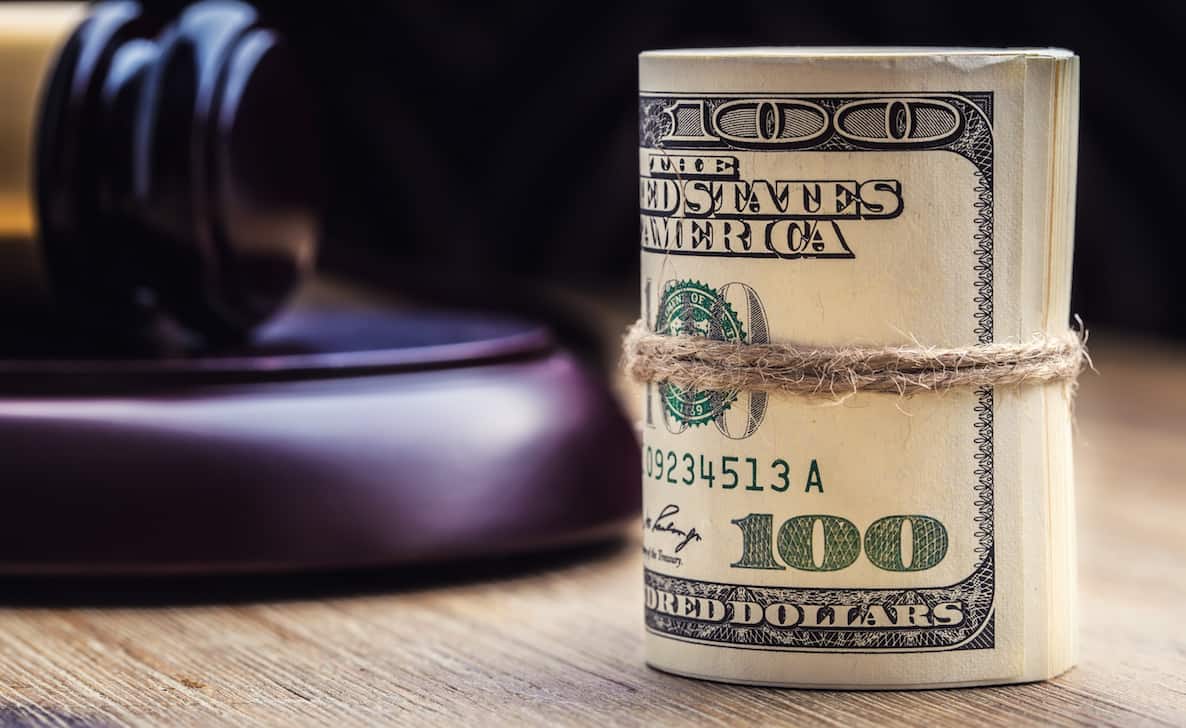
Has anyone ever left you a fake review on Yelp, Google, or Facebook? If so, how did you know it was fake? Was it because you know all of your customers, or just because the review didn’t get the small details correct?
Regardless of how you sniffed out the fraudulent “customer,” fake reviews are both a nuisance and a very real threat for small-to-medium sized businesses. Your online reputation is strongly tied into your overall success, and reviews are a large part of online reputation.
If you’re playing the smart game, you take online reviews seriously.
And some business owners take fake online reviews more seriously than others. Take Stephen Blumberg of Stephen Leigh Jewelers in Quincy, MA, for example. He recently won a lawsuit against an allegedly fake reviewer, who happened to work for a competing local jewelry store.
The amount the reviewer has to pay? $34,500, all for one fake review.
Just the Facts
Adam Jacobs, who works for Toodie’s Fine Jewelry in Quincy, posted a negative Yelp review of Stephen Leigh Jewelers several years ago– at least according to the jury who heard the case.
In the recent case, a jury decided the review was fake, and that Jacobs left the review. Blumberg sensed something fishy when he read the review, as he didn’t remember such a customer interaction ever taking place.
From The Patriot Ledger:
“Posted in August 2013, the multi-paragraph review detailed a supposed visit to Stephen Leigh Jewelers. The reviewer said he entered the shop looking to buy a 1.5-carat diamond engagement ring and had a generally bad experience. As a result, the reviewer said he would advise someone interested in buying jewelry or a watch to “go elsewhere.”
Blumberg’s lawsuit stated that the interaction never happened…
… Blumberg filed the lawsuit in December 2013 in Norfolk Superior Court. In addition to suing Jacobs, he also sued Toodie’s, alleging that the store, owned by Jacobs’ father, was also responsible and was looking to tarnish Blumberg’s reputation.
The jury rendered its decision March 22.”
The lawsuit began in December of 2013, and ended just recently, which means justice took its sweet time, to be sure. But think about it– how many of these fake reviews, left by unscrupulous competitors, go punished at all?
Not many.
In fact, you may have found yourself in a similar situation. Online reviews are an important part of any business’ online reputation, and in tightly-competitive niches, some business owners (and their SEO/marketing firms) will do anything to pull ahead.
Fighting Competition with Fake Reviews
Receiving fake reviews from competitors is nothing new. The Harvard Business Review has been studying the trend since at least 2011.
When competition is fierce, business owners get desperate– and start pulling shady tricks.
A recent, in-depth study from HBR compiled some exhaustive research on fake reviews, and focused on how competing businesses try to manipulate one another’s’ review scores.
The study focused on restaurants, which are a competitive industry, but also an industry that receives more reviews than most. Obviously, restaurants are different from jewelers, but we can learn from overall review trends by looking at what happens in one of the world’s most-reviewed niches.
From the Harvard Business Review:
“… when restaurants face increased competition, they become more likely to receive unfavorable fake reviews. Using a separate dataset, we analyze businesses that were caught soliciting fake reviews through a sting conducted by Yelp. These data support our main results, and shed further light on the economic incentives behind a business’s decision to leave fake reviews.”
If you’re interested in the psychology behind fake reviews, how the process happens, and how prevalent these reviews are, I urge you to at least skim the entire report, which can be found here, as a PDF.
We’ve all heard tales of competitors leaving fake reviews for rival businesses, which is why Stephen Blumberg suspected Adam Jacobs’ review wasn’t just an ordinary, angry customer– it had to be something more.
Doing the Detective Work

Luckily, Blumberg put in the detective work to find out who was behind the review, and also who was behind the fake review. This kind of exhaustive research takes time, and not all of us have the patience or determination to get to the bottom of such a case– but Blumberg did!
From Boston’s CBSLocal:
“Blumberg said the post was up for several month and he was able to track down Jacobs by looking at his other Yelp posts.
“I talked to owners of businesses he had been to, and after getting confirmation of three or four people that that is the person that belongs to Adam J., Adam Jacobs I knew,” said Blumberg.”
Blumberg did his homework by following Jacobs’ alleged Yelp trail, and then calling others businesses Jacobs had reviewed. He found a pattern, and that pattern was enough for the jury to decide in Blumberg’s favor.
So, how can you spot a fake review from a competitor?
We’ve written about fake reviews in the past, but here are a few quick, surefire ways to spot a fake from your competitors:
- Jargon – If the review contains industry-specific jargon or lingo your customers might not necessarily know, but your competitors definitely know, that’s a good sign it’s a fake.
- Out of Nowhere – If a review blindsides you, containing seemingly random complaints you never receive (about customer service, product quality, employee behavior), and doesn’t match up with any of your other reviews, it could be fake.
- Doesn’t Add Up – If a review comes from someone you know you’ve never dealt with, or someone that doesn’t match any of your sales records, it’s likely a fake review.
- Paper Thin Profiles – Always check the reviewer’s profile, especially on Yelp. If the review seems to come from a hastily-made profile with incomplete information, with few previous reviews, it could be fake. And also, do as Stephen Blumberg did and see if the profile has left similar reviews for other businesses.
- Reviewer Won’t Respond – I always recommend that you respond to reviews– especially negative reviews. Solutions can often be found by simply talking with the offended party. If this reviewer isn’t open to an in-person or over-the-phone conversation, it could be a fake review.
Obviously, any one of these factors alone doesn’t mean a review is fake. If you see two or more of these red flags in a given review, however, the chance is good that you’re the victim of a fake review from your competition.
The Moral of the Story
Of course, we’re not all ace detectives like Stephen Blumberg, but his case does set a hopeful precedent for business owners. His case was a civil suit, and not a criminal suit, but it still counts as a victory for everyone who’s ever been the victim of a fake negative review.
Though Google reviews can directly impact search engine visibility, and Facebook reviews are becoming more popular than ever, you still can’t ignore Yelp. You need to monitor your online reputation and, for many businesses, Yelp is a big part of that.
And, according to a new consumer survey conducted by Nielsen (commissioned by Yelp, of course, Yelp reviews greatly impact purchasing decisions.
Here’s a quick analysis from Greg Sterling at Search Engine Land:
“[The survey] argues that review sites drive higher conversions than search and social media. The survey of 2,000 US adults found that 92 percent of respondents said they made a purchase after visiting Yelp, “at least sometimes, frequently or almost always.”
At the highest level, this makes sense because reviews have a strong influence on consumer buying behavior, and review sites are generally part of consumers’ path to purchase. According to the survey, most people who made a purchase after visiting Yelp did so within a week or less.”
Since Yelp commissioned the survey, take it with a grain of salt. But, if you’re here reading this blog, you know online reviews are important– both for purchasing decisions, and for your overall online reputation.
In the future, I think we’ll see fewer of these competitor-powered fake reviews. As more lawsuits like the one Blumberg filed against Jacobs go to court, unscrupulous business owners will feel more afraid to leave those fake reviews. The risks will outweigh the rewards.
In the meantime, though, you need to pay attention to every review platform that matters for your industry. For many of us, that includes Yelp. I don’t always agree with Yelp’s business practices, but we’re stuck with them for the foreseeable future.
You can’t ignore your reputation, so you can’t ignore fake reviews– on Yelp, or on any other platform.





